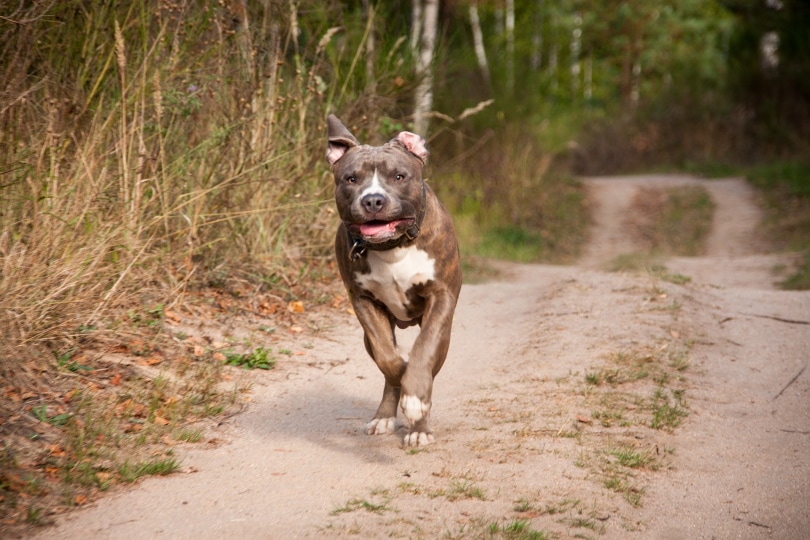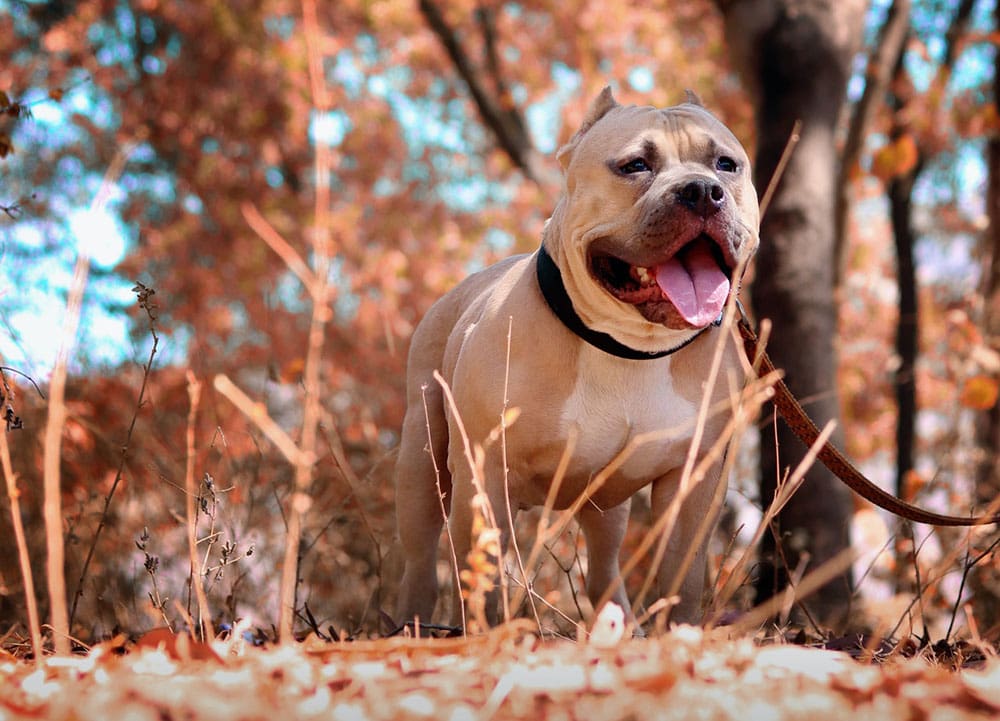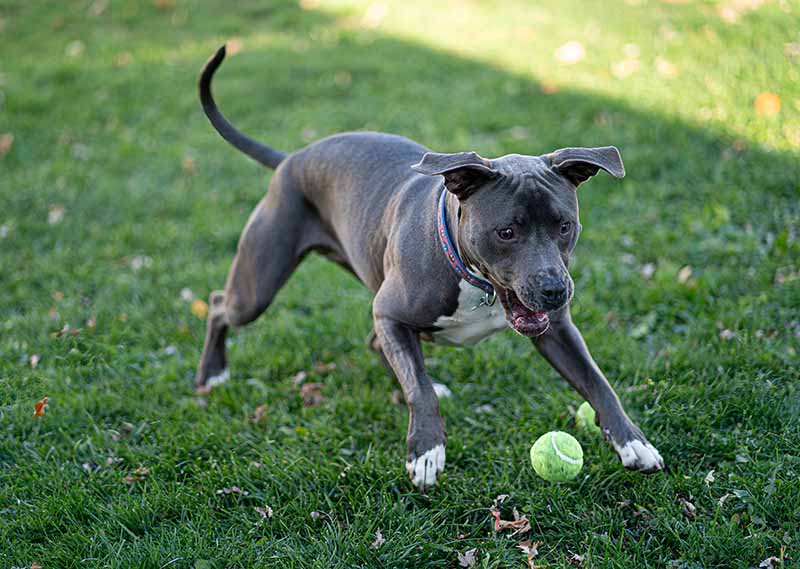
Pitbulls have long been a controversial breed, often associated with aggression and danger. Despite their loyal and affectionate nature, these dogs have been the victims of widespread discrimination and mistreatment throughout the United States and all over the world. From breed-specific legislation to media sensationalism, Pitbulls are consistently targeted and vilified, leading to devastating consequences for both the dogs and their owners. But are they banned in the US? The short answer is No, they are not banned in the US. Let’s find out more in this article.
Are Pitbulls Banned in the US?
No. There is a common misconception that they’re banned here in the US. The truth is that currently (as of 2023) there is no federal law banning Pitbulls, but some states and cities have breed-specific legislation that regulates or bans certain breeds, including Pitbulls. For example, Miami-Dade County in Florida does have a ban on Pitbulls, while other cities and states have restrictions on Pitbull ownership, such as mandatory spaying or neutering, liability insurance requirements, or confinement rules.
However, it’s worth noting that breed-specific legislation has been controversial and criticized for its effectiveness and fairness. Many advocates argue that breed-neutral laws that focus on responsible ownership and education are more effective in promoting public safety and reducing dog bites.

Pitbull Breed Overview
The term “pitbull” is actually a broad term that refers to several different breeds of dogs, including the American Pit Bull Terrier, American Staffordshire Terrier, and Staffordshire Bull Terrier. Pitbulls are medium-sized dogs with a strong and muscular build. They have broad heads, short and shiny coats, and powerful jaws. The physicality of Pitbulls is one of the reasons why they are often chosen as working dogs.
They’re known for their strength, agility, and endurance, which makes them ideal for tasks such as hunting, herding, and guarding. Pitbulls are also highly intelligent and trainable, which enables them to excel in obedience and agility competitions. However, their physicality can also make them challenging pets for inexperienced owners. Pitbulls require regular exercise and socialization to keep them physically and mentally healthy. Proper training and socialization can help prevent aggressive behavior and ensure that they are well-behaved companions.

The History of Pit Bulls and How They Became Associated with Violence
Pitbulls were originally bred in the 19th century for blood sports such as bull-baiting and bear-baiting. These activities involved dogs being pitted against larger animals in fights to the death. The breeders specifically selected dogs with a high tolerance for pain and aggression, resulting in a breed that was physically and mentally tough. Pitbulls were later used for dogfighting, which was made illegal in the United States in the 1970s. While some Pitbulls were trained for fighting, the majority of these dogs were never involved in any violent activities.
Despite their history, these dogs were actually once considered beloved family pets in the United States. During World War I, Pitbulls were even used as mascots for the United States military. However, in the 1980s, media sensationalism began to portray Pitbulls as “killer dogs” and “time bombs.” This led to a public fear of the breed, and many people began to view Pitbulls as inherently dangerous animals.

Debunking Common Pit Bull Misconceptions
Contrary to popular belief, Pitbulls are not inherently aggressive. In fact, they’re known for their loyalty, affection, and gentle nature. According to the American Temperament Test Society, which tests the temperament of various dog breeds, Pitbulls have a pass rate of 86.4%, which is higher than the pass rate of many popular dog breeds, including Chihuahuas and Dalmatians.
Another common misconception about Pitbulls is that their jaws physically lock when they close them to bite. This isn’t really true. Pitbulls do have a very strong bite force, but their jaws do not actually lock. Additionally, Pitbulls aren’t any more likely to bite than other dog breeds. In fact, according to the Centers for Disease Control and Prevention (CDC), the most common dog breeds involved in fatal dog attacks between 1979 and 1998 were German Shepherds, Rottweilers, and Huskies, not Pitbulls.

Breed-Specific Legislation on Pitbulls and Their Owners
Breed-specific legislation (BSL) is a type of law that bans or restricts certain breeds of dogs, usually those that are perceived as dangerous. BSL has been implemented in many cities and states throughout the United States, often targeting Pitbulls. These laws may require Pitbull owners to obtain special licenses, muzzle their dogs in public, or even euthanize their pets if they are deemed dangerous.
BSL has had a huge impact on Pitbulls and their owners. Many Pitbulls have been seized and euthanized simply because of their breed, even if they’ve never shown any signs of aggression, which is saddening for many dog lovers. This has caused heartbreak and trauma for families who love their dogs and consider them part of the family. In fact, many experts argue that BSL is a waste of resources that could be better spent on education and enforcement of existing laws.
Organizations Fighting Against Pit Bull Breed Discrimination
There are many organizations fighting against breed discrimination and advocating for the fair treatment of Pitbulls. One of these organizations is the Animal Farm Foundation, which works to promote positive perceptions of Pitbulls and other “bully breeds.” The foundation provides grants to animal shelters and rescue organizations to help Pitbulls find homes, as well as educational resources for the public.
Another organization is Best Friends Animal Society, which works to end the killing of dogs and cats in animal shelters. Best Friends advocates for the repeal of BSL and supports responsible pet ownership. The organization also operates several animal sanctuaries and adoption centers throughout the United States.
If you’re interested in getting involved in the fight against breed discrimination, there are many ways to do so. You can volunteer at a local animal shelter, donate to animal welfare organizations, or even become a foster parent for a Pitbull or other animal in need.

How Responsible Pet Ownership Can Help Combat Breed Discrimination
One of the most effective ways to combat breed discrimination is through responsible pet ownership. This means properly training and socializing your dog, keeping them on a leash in public, and supervising them when they’re around children or other animals. It also means spaying or neutering your pet to reduce the number of homeless animals in shelters.
By being a responsible pet owner, you can help combat the harmful stereotypes and myths about Pitbulls and other “bully breeds.” You can show others that these dogs are loving and loyal companions who deserve to be treated with kindness and respect.

Training & Socializing Pit Bulls
Pitbull obedience training and socialization are essential for those who own this breed of dogs. Pitbulls are known for their strong will, determination, and intelligence. They’re also known for their loyalty and super-protective nature towards their owners. However, without proper training, they can become stubborn and very aggressive – and dangerous. Obedience training helps to establish a bond between the owner and the dog, and it teaches the dog to follow commands.
The training also helps to prevent unwanted behavior such as jumping, biting, and barking excessively. It is important to start obedience training at a young age (8–10 weeks is ideal) to ensure the best results and to prevent them from becoming uncontrollable adults or aggressive.
Pitbull obedience training can be done through various methods, including positive reinforcement, clicker training, and leash training. With consistent training, patience, and positive reinforcement, these smart dogs can become well-mannered and obedient pets.

Pitbull Daily Exercise Requirements
Pitbulls are known for their high energy levels and require regular exercise to maintain their physical and mental health. These muscular dogs need a lot of activity to keep them happy and prevent destructive behavior. Ideally, they should have at least 1 hour of exercise every day, which can come in the form of long walks, runs, or playtime at the park.
Pitbulls also benefit from activities such as hiking, swimming, and agility training. Exercise not only helps with weight management but also reduces the risk of health issues such as obesity, joint problems, and heart disease. It’s worth noting that while Pitbulls love to play, these dedicated pups also have a tendency to overexert themselves, so it’s essential to monitor them closely during exercise and provide plenty of water breaks.
 Conclusion
Conclusion
In conclusion, Pitbulls are amazing dogs that are often misunderstood and unfairly discriminated against due to their reputation as dangerous and aggressive animals. However, with proper training and socialization, Pitbulls can be loyal, loving and well-behaved pets. As an owner, it is essential to understand the breed’s characteristics and needs, which include regular exercise, a balanced diet, and consistent training.
Additionally, it’s imperative to be aware of local laws and regulations regarding Pitbull ownership, as some areas have breed-specific legislation. Despite the challenges, being a Pitbull owner can be a fulfilling experience, as you develop a strong bond with these loyal dogs and advocate for the breed’s positive reputation.
Featured Image Credit: Caroline Ziemkiewicz, Unsplash






